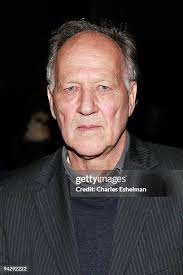
Introduction
Werner Herzog, a prominent figure in the film industry, has garnered attention not only for his distinctive cinematic style but also for his profound storytelling and philosophical explorations. Born on September 5, 1942, in Munich, Germany, Herzog’s work transcends traditional forms, often delving into the depths of human experience and nature’s overwhelming force. As Germany celebrates its cinematic icons, Herzog remains a critical touchstone in discussions around film and narrative art.
Significant Contributions to Cinema
Herzog’s career spans over five decades, during which he has directed over 70 films, encompassing both fiction and documentaries. Some of his most notable works include ‘Aguirre, the Wrath of God’ (1972) and ‘Fitzcarraldo’ (1982), where he examined obsession and ambition against the backdrop of breathtaking yet brutal landscapes. Herzog’s documentary ‘Grizzly Man’ (2005) showcases his ability to marry the profound with the absurd, focusing on the life and death of bear activist Timothy Treadwell.
In recent years, Herzog’s influence has expanded beyond cinema. He has embraced digital platforms and virtual reality, exploring new narrative methodologies, including his interactive documentary ‘Nomad: In the Footsteps of Bruce Chatwin’ (2019) which received attention for its innovative storytelling format.
Recent Projects and Relevance
As Herzog continues to create, his recent endeavors have caught the attention of film enthusiasts and scholars alike. His presence in the film industry remains relevant, as evidenced by numerous interviews and discussions. Most recently, he featured at film festivals and industry panels, sharing insights on the craft of filmmaking in challenging environments.
His latest project, ‘The Fireball’ (2020), focuses on the mysterious phenomenon of meteorites, which further demonstrates his unyielding curiosity and fascination with nature. Herzog’s affinity for the unusual and the extraordinary has consistently urged his audience to reconsider their place within the cosmos.
Conclusion
Werner Herzog’s contribution to the film industry is incomparable; his body of work not only entertains but also provokes thought and introspection. Through his exploration of life’s complexities, Herzog challenges audiences to confront the raw and unfiltered aspects of our existence. With a career that shows no signs of waning, his future projects are awaited with bated breath, promising to further ignite discussions on the artistry of storytelling. For film lovers and newcomers alike, Herzog’s unique vision offers a rich and immersive viewing experience that will undoubtedly keep audiences engaged for years to come.



